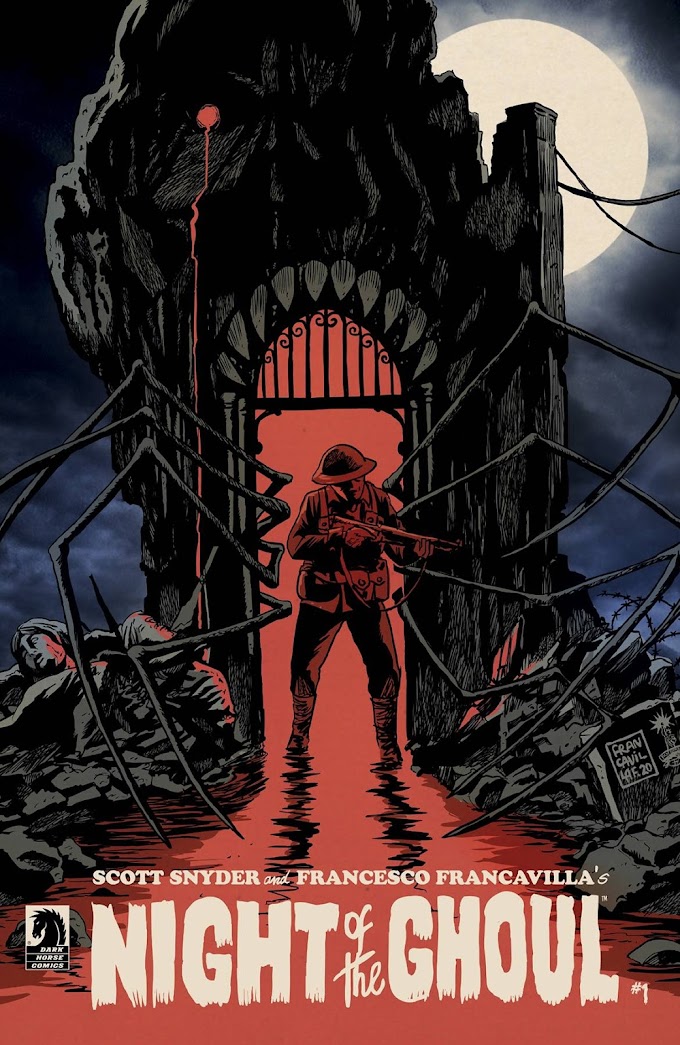 Written by Grant Morrison
Written by Grant MorrisonIllustrated by J.H. Williams III, Tony S. Daniel, Ryan Benjamin, Jonathan Glapion, Mark Irwin, Sandu Florea, and Saleem Crawford
DC
First of all, I have a complaint to DC. Would if have been so hard to label the Grant Morrison Batman trades Vol 1, Vol 2, and so on? This refusal to keep things in sequential order, which is probably a marketing ting, is driving me crazy.
Now that I got that out of the way, let's continue. Grant Morrison's Batman run moves forward here in these issues, which see three different pencillers and 5 different inkers, if you include Williams III. Therefore, it's an uneven mix for the reader's eye, which is okay because the story itself is also uneven.
Morrison continues his desire to keep his main purpose shrouded in mystery, and makes the mistake that too many DC writers are doing these days--he has to touch prior stories instead of leaving them alone. It doesn't matter how good you are as a writer--trying to put oddball things back into continuity via realism is a bad idea. Morrison falls into that trap, and the story suffers for it.
First up is a murderous trip with the Club of Heroes. As with the first arc in the beginning of Morrison's run, it's a fairly straightforward story with a lot of Morrison twists and turns. His Batman is strong and at the top of his game. He's one step ahead of everyone else in the story, with predictable resentment. However, he shows that he's doesn't feel superior to the others just because he's smarter.
In other words, it's the Batman from Morrison's JLA run. It was so nice to see him again, even if it was all too brief. As soon as we move back to Gotham City, Batman is tripping over himself under the weight of imaginary stories that must be given a reason for their existence.
First we have alternative Batmen running about, a product of a plan to replace Batman if he died. Then we learn this is tied to some things Batman did in the past (a few years ago for us, but decades ago in comics terms). Dick doesn't want to talk about it (neither do I), but Tim thinks it's setting Bruce up for a fall. When Talia gets into the mix and revelations are made, things get a bit more complicated.
No matter how good Grant Morrison is, he can't make me care about a story arc that attempts to explain the wacky cases Batman went on to keep the stories varied in the 1950s and 1960s. They're from a particular time period and should be enjoyed as such. Trying to update them as part of Bruce's mental training is a big mistake.
In addition, Morrison is working overtime to fit in the events of 52, stuff from Matt Wagner, Chuck Dixon, and others into his Batman, and the result feels jumbled and rushed. The whole idea is to get Batman thinking about his mortality to prep us for Final Crisis, but all it gets me thinking is how stories written to set up other stories aren't very good.
There are things in here that just don't make sense at all. Batmite is Bruce's subconscious alter ego that keeps him from losing in no-win situations? He tortured Joe Chill into killing himself? Bruce is really Ed Brubaker, writing hard boiled crime stories for Alfred's enjoyment?
I'm sure there are some people for whom this is great stuff, linking up past and present to form one cohesive whole. But to me, it's trying to fit the square pegs of one era into the round hole of another. Having Robin stuck in a death trap because the villain is trying to recreate the old times is one thing. Explaining the old times is another.
Grant Morrison is one of my favorite writers, but I just think he swung and missed on this one. I'm going to try reading Batman RIP to see if maybe this is just a weak middle section, but overall, I'm really disappointed.
It reminds me of going to see a band I liked a lot but about 10 years after their prime. I was shocked at how things weren't the way I wanted them to be--i.e. the artists they were in the past. I admit, I was hoping for the Grant Morrison of 1995 and got the 2005 edition instead.
Personally, I wouldn't recommend this collection to others, but if you really like Grant Morrison and haven't checked it out yet, it's probably worth reading to see what you think. For me, unless there's one hell of a payoff down the road, I'm just going to have to chalk this up to Morrison moving on in a direction I'm not fond of, which is okay. I'll always have the bit with the White Martians.





![Sweat and Soap [Ase to Sekken] by Kintetsu Yamada](https://blogger.googleusercontent.com/img/b/R29vZ2xl/AVvXsEgMnQltxjWqGS1_duhCp9Er1a0NbALuSFrqvjaV4_PjN_w67xCGghYt-l0qKyqTH7Ei7gbq_mxVq8aPAuOiyaArwAMLJWhpGmOYaARUBnwvjmv2-ZIe20m_zR5CvKnPdI6US_AuOnmi3gSX/w680/57525895-BA7E-4EF8-9FE4-89F9C164E1A4.jpeg)

